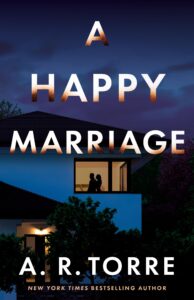There’s something deliciously unsettling about a perfect marriage.
Maybe it’s the way a happy couple smiles just a little too wide. Maybe it’s the pressure cooker of domestic life—two people bound together by love, finances, secrets, and expectations. Or maybe it’s because behind closed doors, anything can happen.
Marriage, at its core, is a contract of trust. And that’s exactly what makes it the ideal backdrop for suspense. When trust erodes, what’s left behind isn’t just betrayal—it’s danger.
It’s obsession.
It’s motive.
Domestic suspense has exploded in popularity because it hits close to home—literally. These stories aren’t happening in haunted cabins or at the hands of serial killers in dark forests. The tension doesn’t need a stormy night or an abandoned road. Now the monster could be in the master bedroom. He could be sleeping beside you. Or maybe… she is.
We’re drawn to these stories because they hold up a mirror to our own lives. We all know what it’s like to argue over dinner, to wonder if our spouse is hiding something, to balance love with resentment, or routine with longing. Domestic suspense takes those universal experiences and turns the temperature up times ten. A forgotten anniversary becomes a clue. A missing phone becomes a red flag. A seemingly loving partner… becomes the prime suspect.
In A Happy Marriage, we meet Joe and Dinah—by all appearances, a perfectly in-sync, loving couple. They eat breakfast together. They finish each other’s sentences. They even solve mysteries in parallel professions: he’s a therapist; she’s a homicide detective. But from the very first chapter, the reader knows something is off. Joe is already comparing his wife to the first girl he killed.
That contrast between intimacy and menace—that’s the recipe for great domestic suspense. Joe isn’t just hiding something from Dinah. He’s cataloging her every move, every emotion, every outfit. He loves her… obsessively. And she has her own secrets, ones she’s buried so deep she’s convinced her husband will never find them.
That’s the beauty of the subgenre: the enemy isn’t always a stranger in the shadows. It might be your spouse across the table—the trusted partner who remembers your salad order but might be orchestrating your downfall.
In A Happy Marriage, Joe’s love for Dinah is laced with a dark undercurrent. His devotion is both seductive and terrifying. He studies her like a puzzle he’s already solved, but continues to take apart just to feel closer to her. The threat isn’t explosive—it’s intimate, quiet, and crawling under your skin.
And Dinah? She’s no passive victim. She’s intelligent, calculating, and haunted by a past she’s kept buried, even from the man who shares her bed. While Joe is busy monitoring her every move, she’s orchestrating her own dance of deception. Their marriage is a perfect storm: two people who love each other deeply… and could destroy each other completely.
The tensions between them heighten when Joe begins treating a new patient, a young woman who may or may not have killed her own mother, an investigation that Dinah is leading. The closer Dinah gets to the truth, the greater her fears that her husband will discover her secrets. In this story, the danger isn’t distant. It’s sitting across from Dinah at dinner each evening, and lying beside her in bed every night.
That kind of fear hits differently. It feels intimate. Inescapable. Real.
And it’s what makes domestic suspense so addictive. These aren’t stories built on body counts or explosions. They’re built on tension. On subtext. On the slowly dawning realization that something is very wrong—and the growing fear that no one is coming to save you.
Think of books like Gone Girl, The Last Mrs. Parrish, or Behind Closed Doors. What do they all have in common? A central relationship that looks flawless from the outside but conceals a web of lies, manipulation, and power struggles. Domestic suspense thrives in that space between love and loathing, commitment and control.
It’s a genre that turns everyday objects into ominous clues. A shared password. A bruised wrist. A quiet moment in a car that stretches a second too long. A neighbor’s sideways glance. These novels teach us to read between the lines—to question everything, even affection.
Because love, when wielded as a weapon, is one of the most dangerous tools in fiction.
As long as love exists, so will the potential for heartbreak, obsession, and revenge. For suspense readers, there’s nothing more gripping than watching a marriage unravel one dark twist at a time
Domestic suspense lingers in those moments. It feeds on them.
Because in the right hands, love isn’t just a bond.
It’s leverage.
***


















